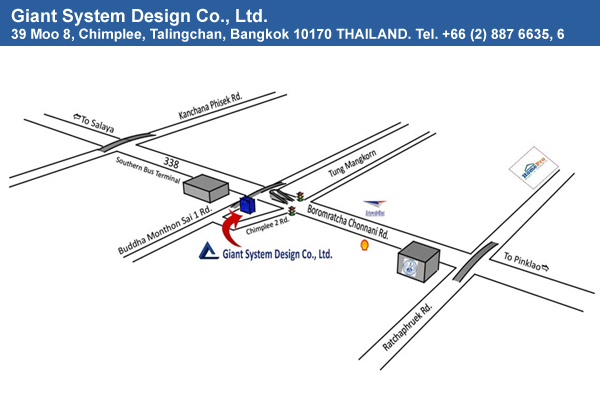Home > Knowledge Base > Integrated Logistics Support
 Integrated Logistics Support (ILS) is the disciplined and unified management of the technical logistics disciplines that plan and develop support for military forces. In general, this means that ILS is the management organization that plans and directs the activities of many technical disciplines associated with the identification and development of logistics support requirements for military systems. There are comparable organizations outside the military which provide the same capabilities. In a commercial company this organization may be called product support, customer services, or many other similar names.
Integrated Logistics Support (ILS) is the disciplined and unified management of the technical logistics disciplines that plan and develop support for military forces. In general, this means that ILS is the management organization that plans and directs the activities of many technical disciplines associated with the identification and development of logistics support requirements for military systems. There are comparable organizations outside the military which provide the same capabilities. In a commercial company this organization may be called product support, customer services, or many other similar names.
Principal Elements of ILS
The ILS organization contains technical disciplines that specifically address the support aspects of maintenance planning; manpower and personnel; supply support: support and test equipment; training and training devices; technical data; packaging, handling, storage, and transportability; facilities; reliability and maintainability; and computer resources support. These areas, as listed below, are commonly referred to as the principal elements of ILS. Each of these elements is the responsibility of an ILS discipline that is staffed with logistics engineers trained in that particular specialty.
Maintenance Planning.
Much of the support of military systems is centered around maintenance of equipment. A primary function of ILS is to develop a concept for the maintenance program to support a military system and then to plan the detailed maintenance actions that must occur to support the system. The requirements for maintenance then drive the decisions concerning the resources necessary to support maintenance actions. Logistics engineers are responsible for maintenance planning and analysis through the maintenance engineering process.
Manpower and Personnel.
Systems cannot operate and maintain themselves. ILS is charged with the responsibility of identifying the number of military and civilian personnel needed to support operations and maintenance and the skills they require. This is accomplished by maintenance engineers and personnel specialists who participate in the design and analysis process as the system is being developed.
Supply Support.
Operation and maintenance actions require material in the form of spare and repair parts. Identification and acquisition of the materials necessary to support the operation and maintenance of military systems is another key responsibility of the ILS organization. The disciplines of provisioning and supply support fulfill this requirement.
Support and Test Equipment.
Most military systems require additional items of equipment to support operations or maintenance. Support equipment specialists and test engineers conduct analyses to identify and develop these requirements as a portion of the overall maintenance planning process.
Training and Training Devices.
Trained and qualified operators and maintenance personnel are required to support military systems. Within the ILS organization are training specialists who participate in the planning process to identify training requirements and develop appropriate training courses for operation and maintenance personnel. Necessary devices and equipment to support training are also developed by this group.
Technical Documentation.
The equipment user needs instructions on how to operate and maintain the system. Technical documentation is prepared by the technical publications discipline that accompanies the system. This documentation describes all the actions required for system operation and maintenance.
Packaging, Handling, Storage and Transportability.
The physical movement of a system must be accomplished in a manner that does not reduce its effectiveness. Logistics engineers plan and implement the procedures and measures necessary for packaging, handling, storage, and transporting military systems.
Facilities.
Operation and maintenance of most military systems and training of personnel require some type of facilities. ILS is responsible for identifying the needs for facilities, planning facility utilization, and developing the justification for acquisition.
Reliability and Maintainability.
The areas of reliability and maintainability address how long a system will operate without failing and how long it will take to fix and item when it fails, respectively. Sometimes these disciplines are within the scope of the ILS organization and sometimes they are not, depending on a company’s organization. In either case, reliability and maintainability play an important role in determining the support that will be needed when a system is used. Logistics engineers use information from the analyses performed by reliability and maintainability engineers to develop system support requirements.
Computer Resources Support (Software and Firmware).
Computers are used to operate and maintain many military systems. The majority of logistics activities have historically dealt with hardware, and most logistics requirements are focused on the maintenance of hardware. The hardware for computers is addressed by the technical disciplines identified above. This leaves software and software embedded on hardware, or firmware. Software is different. Software does not have the physical characteristics of hardware, so it is more difficult to address in the context of failures and maintenance tasks. The resources to support software and firmware are an integral part of the support package for most systems.
Goals of ILS
The goals of the ILS organization are to cause logistics support considerations to influence the design of a system, to identify and develop support requirements that are related to and supportive of the readiness objectives of the system, to acquire the necessary support, and to provide the required support for the minimum cost. The ILS organization is an integral part of the engineering effort that designs military systems. Logistics engineers work hand in hand with other engineers to ensure that support is considered in the design process. Logistics analyses are conducted to identify ways in which the design can be changed to improve support or supportability. Additional analyses are performed to identify the resources that will be required to support the system when it is used. Logistics support resources are the biggest expense associated with a military system over its useful life, so it is imperative that ILS plan for the most economical use possible of these resources.
By:
JAMES V. JONES
Integrated Logistics Support Handbook
SECOND EDITION
A McGRAW-HILL SPECIAL REPRINT EDITION
ISBN 0-07-033079-4
Page 1 of 2 1 2
GSD Menu
Product&Service
- Software Development
Systems analysis, systems design, Intranet and Internet software development. - GILS
Giant System Design Integrated Logistics Support Web Application. - Accounting System
Accounting, budgeting, financial, purchasing and inventory control system.
Knowledge Base
- Maintenance Management
Maintenance plan, maintenance concept and maintenance levels. - ILS
Integrated Logistics Support.
Number of visitors

